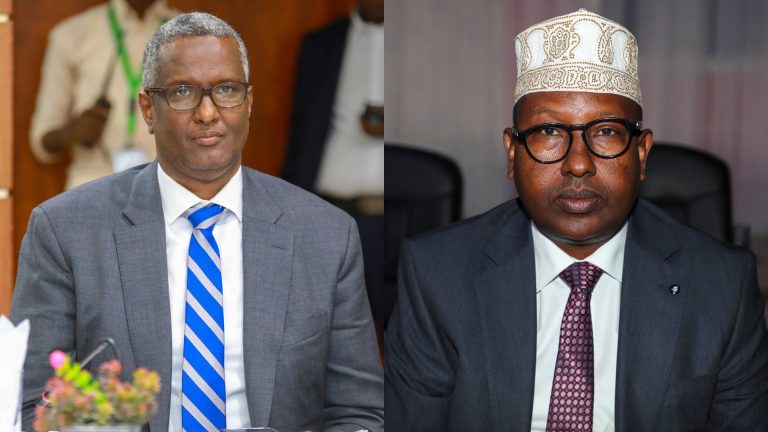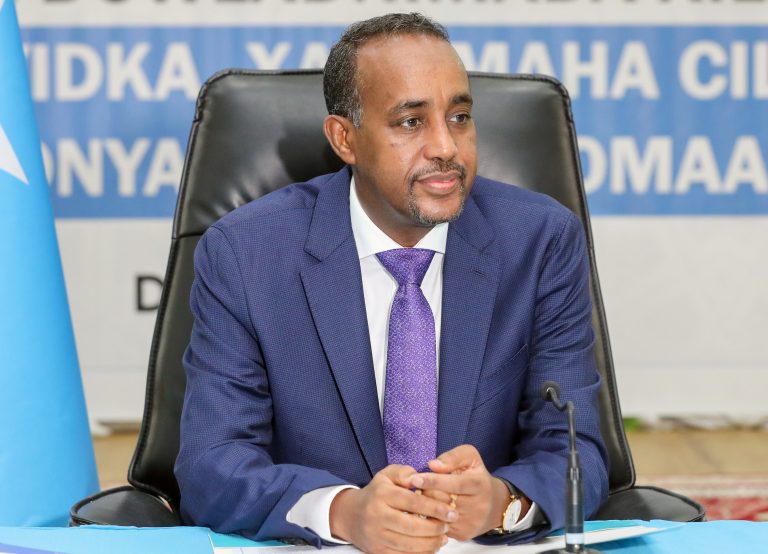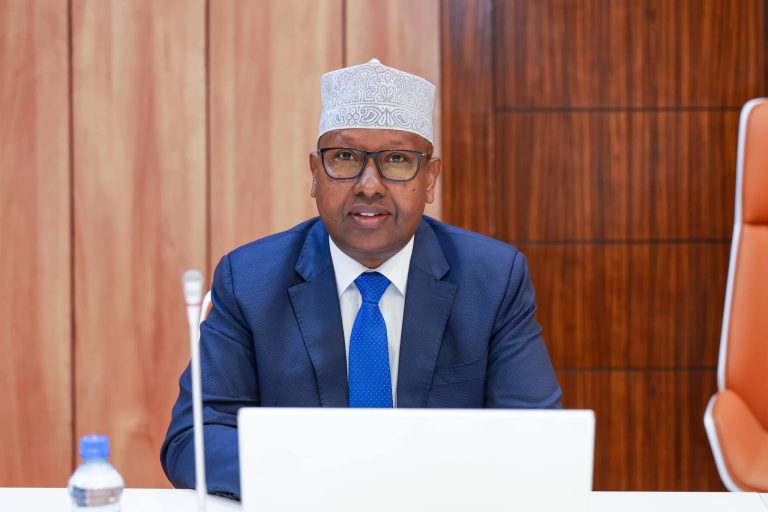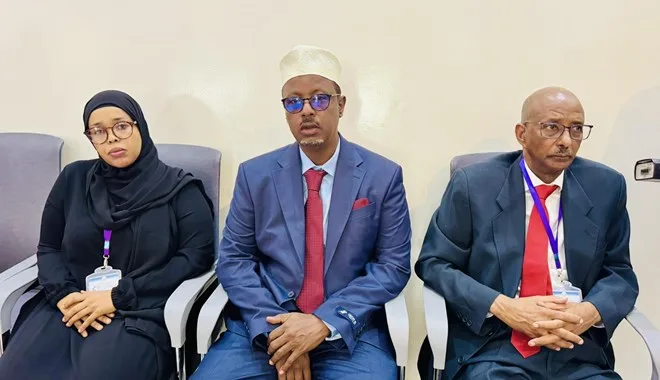Mogadishu, Somalia – In a country where political fortunes often rise and fall overnight, President Hassan Sheikh Mohamud has managed something rare: a steady consolidation of power since his return to office in 2022.
Through patience and calculated maneuvering, he has gradually neutralized his rivals and tightened his grip on Somalia’s fragile political system.
When Mohamud returned to Villa Somalia, the presidential palace, for an unprecedented second non-consecutive term, he came back as a very different leader than before.
Gone was the reformist optimism that marked his first presidency. In its place is a leader who prizes caution over confrontation, favoring co-option, carefully chosen appointments, and delays that sap his opponents’ momentum. The result is a presidency defined not by bold reforms, but by strategic containment.
All of this unfolds while Somalia continues to battle its gravest threat: the Al-Qaeda-linked insurgency Al-Shabaab, which still controls vast stretches of the country and wages a relentless war against the government.
A strategy of containment
Mohamud’s style contrasts sharply with that of his predecessor, Mohamed Abdullahi Mohamed, better known as “Farmaajo.” Where Farmaajo sought to challenge federal states head-on, Mohamud prefers to absorb and outlast his opponents.
“He doesn’t need to defeat enemies outright; he just needs to keep them distracted, divided, and manageable,” observed one recent analysis of his leadership.
Dialogue is often his chosen weapon, but usually in a form that drags on, blunting momentum and scattering opposition alliances. At the same time, he has filled key government positions with loyalists, ensuring the executive and legislature move in lockstep.
The appointment of Hamza Abdi Barre as prime minister was a telling example. A longtime ally who stayed loyal even when overlooked during Mohamud’s first presidency, Barre is seen more as a steady partner than a potential rival.
In parliament, Mohamud secured the return of seasoned politician Sheikh Adan Madobe as speaker and placed his trusted confidante Sadia Yasin Samatar as deputy speaker. Together, they provide the president with a legislative shield.
Opposition in disarray
The opposition, meanwhile, is increasingly fragmented. New reports suggest that leading figures within the Madasha Samatabixinta Soomaaliyeed (Salvation Forum) are preparing to form their own political parties, a move that could reshape the coming electoral landscape.
Former Prime Minister Omar Abdirashid Ali Sharmarke, ex-South West president Sharif Hassan Sheikh Aden, and former parliament speaker Mohamed Mursal Sheikh Abdirahman are expected to announce new parties in the coming days.
Their decision, linked to the district council elections due in late October in Mogadishu, highlights the widening rift inside the opposition bloc.
At the same time, another group of senior leaders — including former president Sharif Sheikh Ahmed, ex-prime ministers Hassan Ali Khaire and Mohamed Hussein Roble, and MP Abdirahman Abdishakur Warsame — have been holding meetings on forming a new presidential candidates’ alliance to counter Mohamud.
The National Independent Electoral Commission has added momentum to this shift by briefly reopening registration for political associations, giving space for new parties to emerge.
For now, however, the opposition appears divided into rival camps. As one Mogadishu-based observer put it: “They have slogans, but no strategy.”
The professor’s lesson
Hassan Sheikh Mohamud’s path to leadership is unlike many of Somalia’s war-hardened elites. Born in 1955 in the rural Hiran region, he was an educator before he was a politician. He taught in schools and worked at the Ministry of Education before the state collapsed in 1991.
Rather than fleeing during the civil war, he stayed in Somalia, building networks through education and civil society work. That grassroots foundation carried him to the presidency in 2012, at the head of a reform-minded group of technocrats known as Damuljadid, or “New Blood.”
His first term aimed at rebuilding state institutions, but insecurity and corruption overshadowed those efforts. Voters turned to Farmaajo in 2017, sending Mohamud into temporary political exile within his own country—until 2022 brought his historic return.
Even with power consolidated in Mogadishu, challenges loom large. The federal state of Puntland, under the leadership of Said Abdullahi Deni, represents the most serious challenge to Mohamud’s authority.
After controversial constitutional amendments pushed through by the federal government earlier this year, Puntland announced it no longer recognized federal institutions and would function as an independent state. Deni remains an ambitious figure, one who could rally disaffected factions into a broader opposition movement.
Meanwhile, former president Farmaajo remains a political wildcard. Though quiet for now, his loyal nationalist base could be reactivated if paired with a federal leader like Deni.
But for the moment, opposition forces remain weak and divided.
For Mohamud, politics has always been an exercise in patience. As a former teacher, he once preached that good governance begins with consistency. His own career has become proof of that lesson.
Where others chase quick wins, he plays the long game. Where opponents protest, he embeds himself deeper. He may lack the charisma of other Somali leaders, but his deliberate style has made him one of the country’s most enduring.
In a nation where politics is often a sprint, Hassan Sheikh Mohamud is showing the power of running a marathon.
























